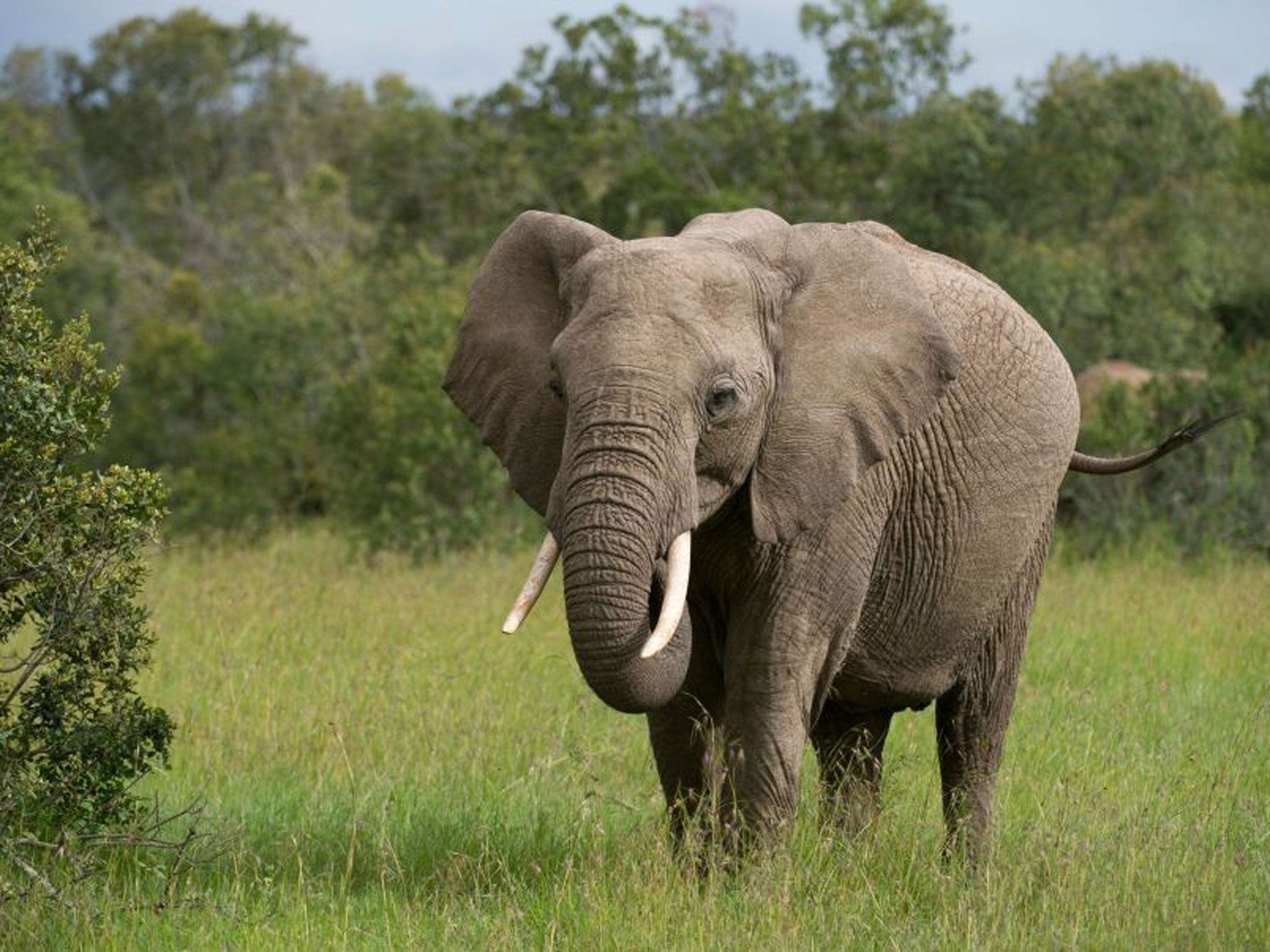Charity Appeal: Kenya's daily battle between humans and wildlife
It's little wonder that villagers want to kill elephants when faced with deadly attacks, but new deterrents help them to co-exist

Anne Nyokabi does not remember much about the day her mother was killed. They were both out walking one morning near their home when an elephant charged. He picked up her mother with his tusks and threw her to the ground. As he stepped on her repeatedly, Ms Nyokabi passed out.
It took neighbours three hours to convince her to let the police take away her mother's body. Two years later, she struggles to talk about that day. In one moment, she lost her mother, her confidante and the loving grandmother to her five children.
Elephants do not often kill people, but in Laikipia, Kenya, a number of people have a similar story to share. It is what happens when humans and nature's giants live side by side. More than 70 per cent of Kenya's wildlife live outside of national parks and can encroach on villages any day. About 35 people are killed by elephants each year in Kenya, according to the Born Free Foundation. Others live with the threat of losing their livelihood in one night, as hungry elephants can trample their crops and destroy a water supply.
"The elephant is like a wound in my mind," Ms Nyokabi said. "I can't even come out of my house when I hear an elephant is near by. Every time I see one, I remember that day. I want them to be far away from here. If they are killed, that's even better. Then they won't be able to attack me."
This is why conservationists and politicians argue that if we are to halt the poaching crisis, communities in Kenya must start protecting the elephant. But until we mitigate the havoc the animals can cause, this will not happen. The situation is urgent. More than 100 African elephants are killed every day; in 2011 alone, almost 12 per cent of the population was destroyed. Kenya's elephant population has plummeted from about 167,000 to 35,000 within 40 years. Communities need to safeguard their elephants but here in Laikipia, where at least 35 have been illegally killed this year, there is one of the country's highest rates of human-wildlife conflict.
David Kimita, a 45-year-old farmer and father of four, blames elephants for the breakdown of his marriage. Every time he plants crops, elephants raid his farm, leaving him with nothing for his family. "My wife depended on me for food, so when there was none, she decided to go – four years ago," he said, adding that he now sees his children only three times a year. "I can't leave as no one would buy this farm. I don't want the elephants dead, but I want them to be removed from here or restricted from coming in."
Susan Wangari Thiongo, 39, who lives near by, has come to dread the nightly elephant raids that destroy her farm and says it is hard to provide for her five children. "It's a cycle and happens over and over again," she said. "We can't go anywhere else but we lose crops every year. The government needs to do something to keep the elephants from our farm."
These clashes are only going to increase as Kenya grows. Its 40 million population is predicted to reach nearly 100 million by 2050, placing even more pressure on the land. But now it seems that the government is listening. Under the new wildlife conservation and management bill, more emphasis will be placed on providing benefits and incentives for landowners and communities that live with and bear the cost of wildlife. Conservation will be recognised as a form of land use and families will be compensated for the loss of a loved one (up to five million Kenyan shillings, or £35,600) or for an injury, as well as for the loss of crops or livestock by animal raids.
Francis Chachu Ganya, a Kenyan MP, said the new law represents a major shift. "In the past, people said we valued wildlife, but we didn't care about the human being. Now we are showing that we value the wildlife but also the people. There is conflict between people living around the parks and the wildlife and it's time to deal with that problem."
But, for some, it is too late. Adan Ali, 40, a father of two from Marmanet, Rift Valley province, lost his 86-year-old father two years ago when an elephant passed by the family compound, picking up his father and throwing him to the ground. He stepped on the left-hand side of his father's chest repeatedly. "If I remember it, I get so angry," Mr Ali said. "My sister was given money by the KWS [Kenya Wildlife Service], but I never wanted any of it. The best thing is for there to be electric fences – we had a solar-powered one but it was broken. We even went as far as digging traps, but elephants somehow managed to cross them."
But Space for Giants, the conservation charity determined to protect Africa's elephants, is working to prevent such incidents. It is monitoring where and when human-elephant conflict occurs using a dedicated community scout network in Laikipia and promotes the use of simple elephant deterrents such as chilli fences and loud noise-makers.
It is also deploying GPS collars on known crop raiders and working with partners and communities to manage electric fences. As a result, crop razing by elephants has been reduced by more than 50 per cent, according to the charity.
Mr Ganya said: "For the first time in wildlife conservation, we are appreciating that people are integral to wildlife systems. It needs to be gainful and meaningful to all."
Join our commenting forum
Join thought-provoking conversations, follow other Independent readers and see their replies
Comments
Bookmark popover
Removed from bookmarks